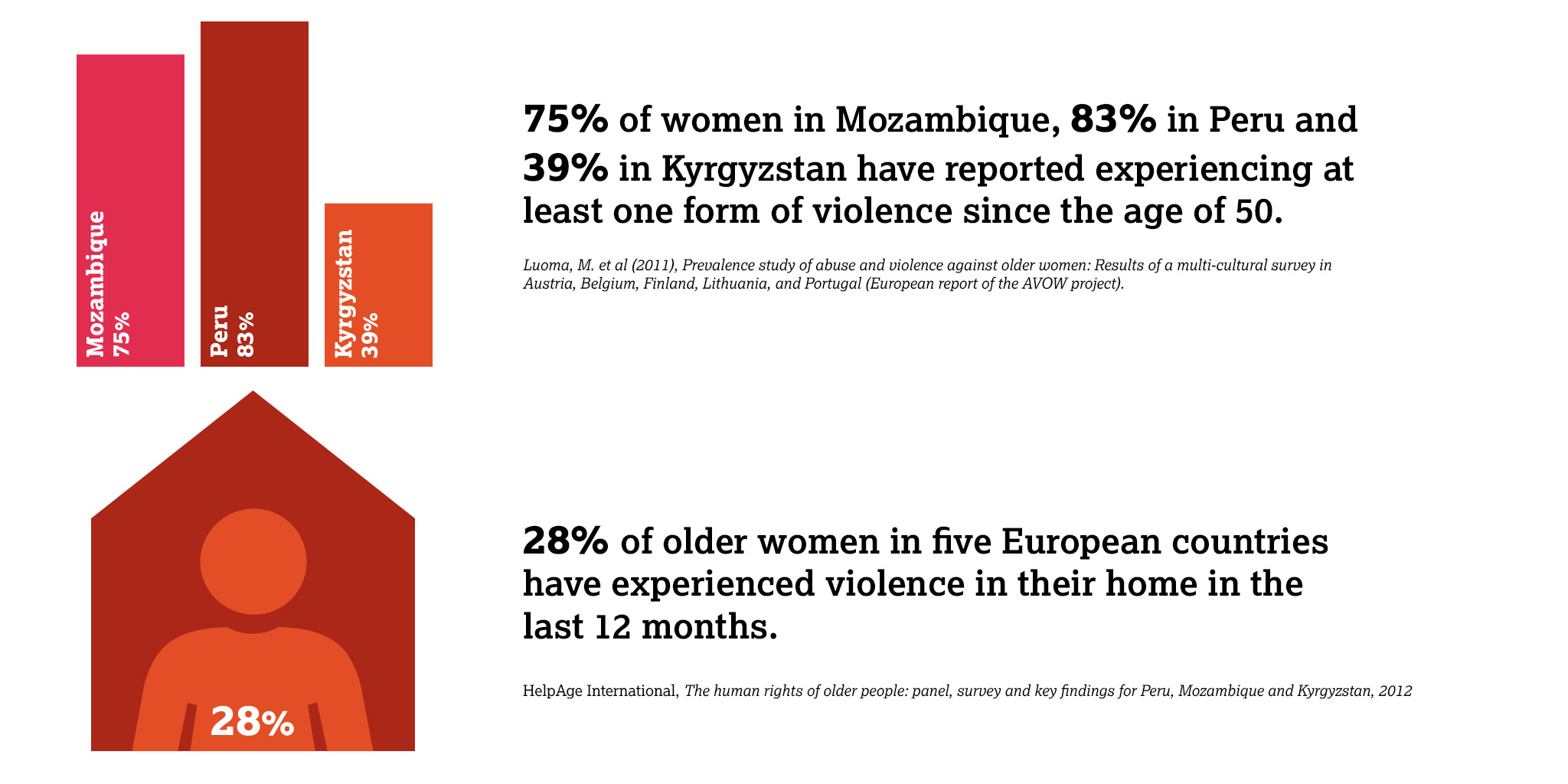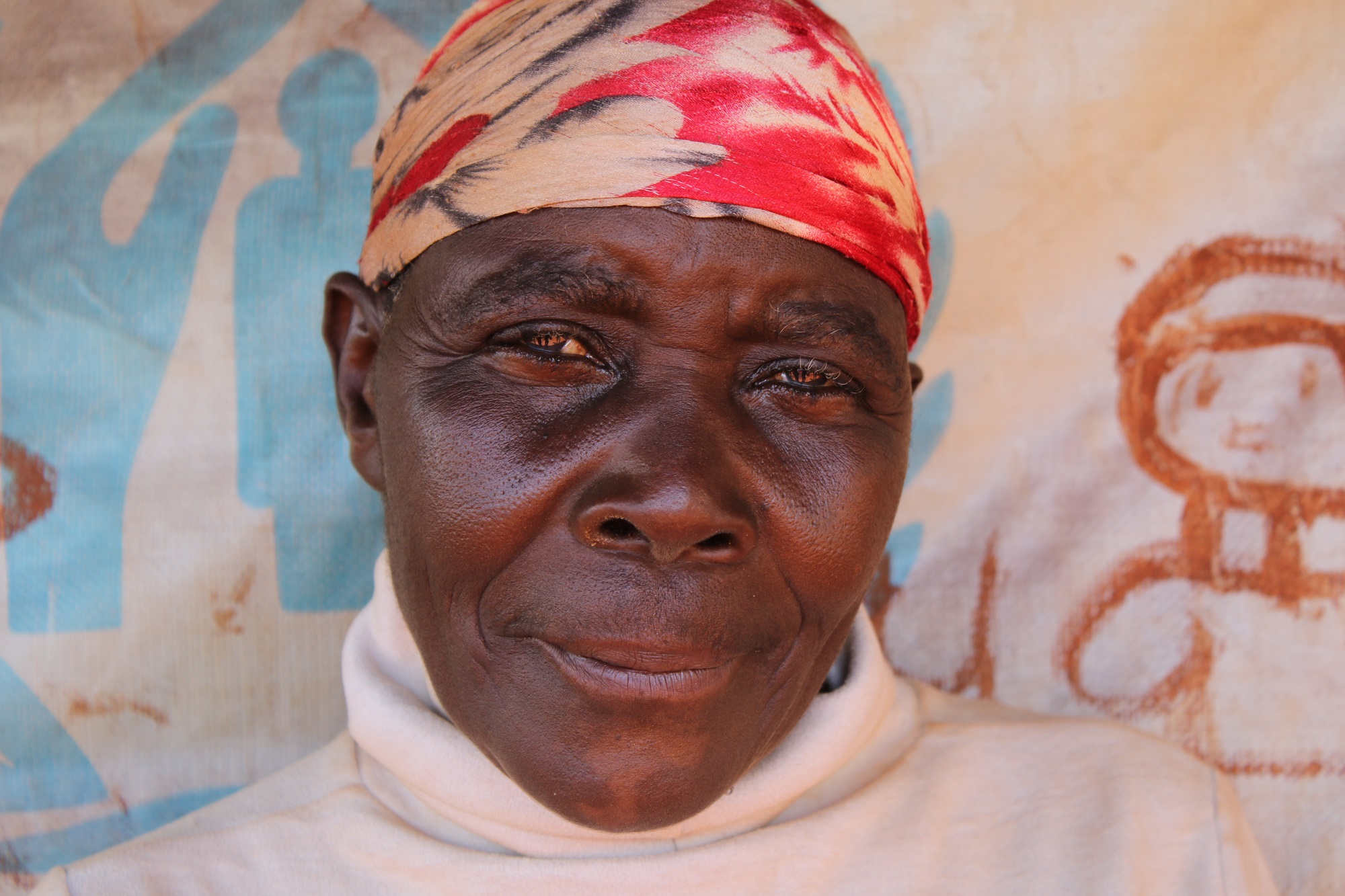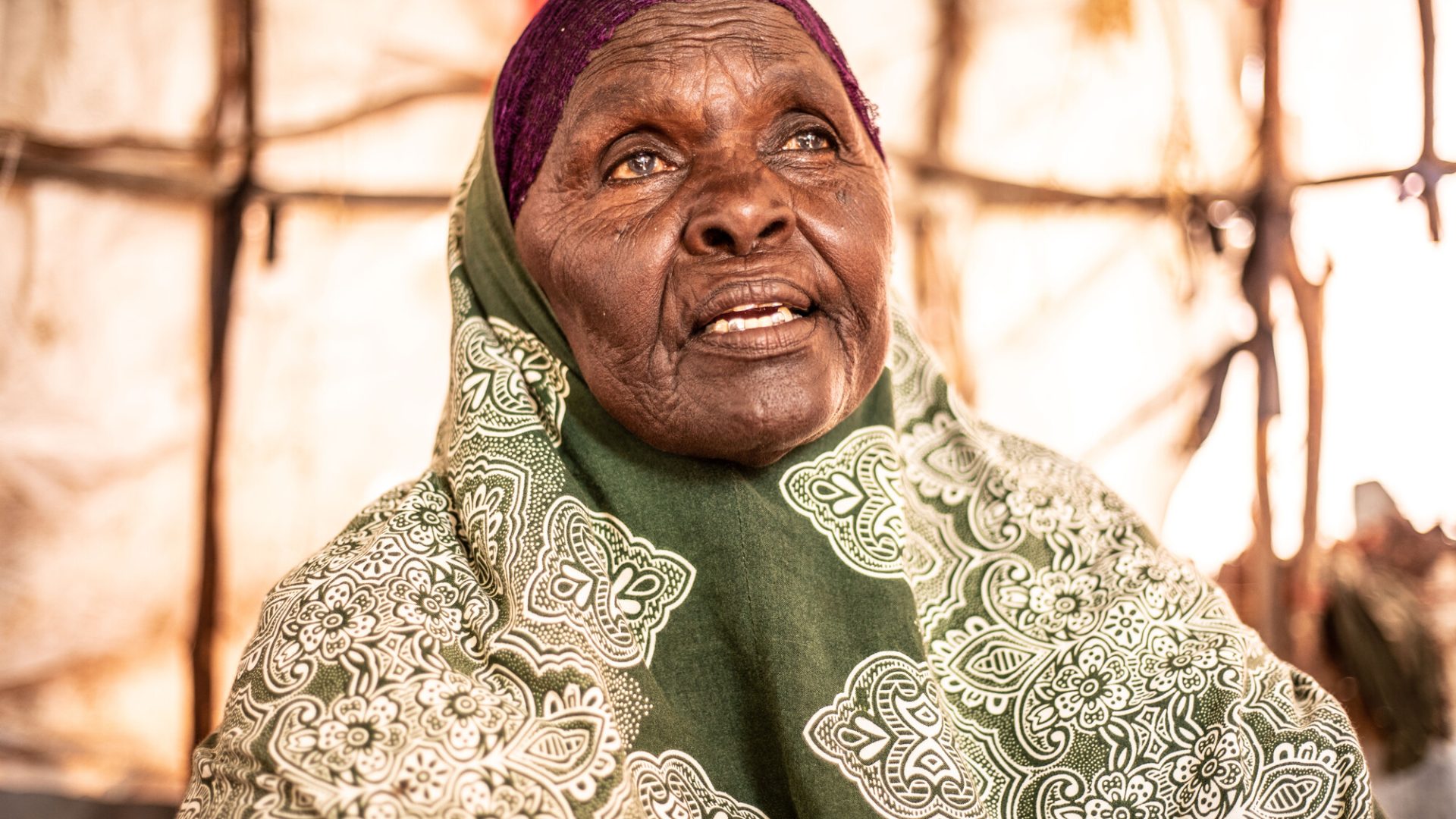We at HelpAge International speak out against the pervasive and often ignored issue of violence against older women. We highlight stories of abuse and raise awareness of the barriers preventing effective action to address this violence.
- Read our discussion paper on violence against older women.
- Watch our video telling the stories of two survivors in Moldova.
“My husband beat me for many years and only after he died could I get over it.”
Violence against older women is a severe human rights abuse. It is driven by both ageism and sexism, but also affected by other characteristics such as marital status or having a disability. It is grounded in deep-rooted prejudices, dehumanising stereotypes and social norms that tolerate and even condone awful acts of violence.
An older woman may be the victim of verbal and physical abuse in her home. She may be accused of “witchcraft” and attacked or even murdered by members of her own community. She may be denied the right to land from her husband when he dies due to discriminatory inheritance laws. Or she may be deprived autonomy in a care setting, with other people making decisions for her that may not be her wish.
She may face many forms of sexual, physical, financial and emotional abuse, committed by various perpetrators.

The perception that this behaviour is the norm, the social stigma that goes hand-in-hand with violence against older women and the lack of attention the issue receives all combine to leave the victims invisible and marginalised, unable to access psychological or legal support. And it leaves this structural and systemic status quo to continue unchecked and the perpetrators unpunished.
The shame older women feel when they are the victims of violence, combined with a lack of support services, discourages them from speaking out about what has happened. The WHO estimates just 1 in 24 cases of elder abuse is reported.
“If I stayed they would kill me”

(c) Ben Small/HelpAge International
Witchcraft accusations forced Bernice to move to a different part of the Mtendeli refugee camp in Tanzania
Seventy-year-old Bernice fled Burundi amid violence and political turmoil alone in early 2017. She settled in the Mtendeli refugee camp just over the border in Tanzania, but soon after arriving she was accused of being a witch by her neighbours.
The woman Bernice was sharing a tent with wanted to coerce her into leaving so that she could move her boyfriend in.
“I refused so they started spreading rumours that I am a witch, and that they don’t want me in the village and that if I stayed they would kill me,” Bernice said.
“The boyfriend then pretended to be dead and the community started to say that I caused it. They came into my tent and beat me at about midnight.”
HelpAge’s team in the camps helped Bernice to move to a different zone in the camp away from her accusers, and worked with the local communities to try to dispel myths about witchcraft.
Gaps in data, policy and response block progress on violence against older women
Although older women experience all forms of violence, there is a lack of data on its prevalence, primarily because surveys are not set up to capture this information in the first place.
In a WHO report on sexual and intimate partner violence, only 66 of its 392 estimates included women over 49. The surveys this study was based on begin capturing this information at age 15 or 18 and then stop at 49, irrespective of the reality that violence against women has no age limit.
A lack of data translates into a lack of protection mechanisms and limited support services for victims, as well as scant prevention programmes.
The right to freedom from violence, abuse and neglect
Governments have an obligation to protect the human rights of their citizens. Yet existing international human rights law does not explicitly safeguard older women from violence.
Just 59% of countries have laws to prevent elder abuse and only 30% of these are fully enforced, according to a WHO survey of 133 countries. Meanwhile domestic violence legislation does not, in general, specifically include older women.
This patchwork of protection undermines the universality of human rights. They must uphold people’s right to freedom from violence, abuse and neglect in every stage of their lives.
We are campaigning for a universal convention on the rights of older people to address this gap, and provide guidance for governments to ensure they are acting in line with international human rights standards.
What HelpAge is doing to tackle violence against older women
- In Moldova, we are working to increase older women’s knowledge about their rights, facilitate their access to support services, and to mobilise civil society to take action in preventing violence against older women.
- In Tanzania, we are working directly with communities to prevent witchcraft accusations and attacks against older women.

